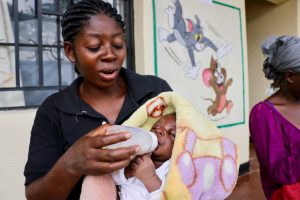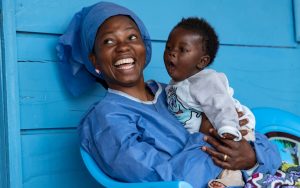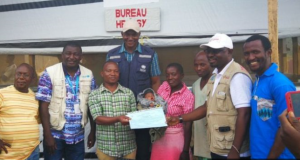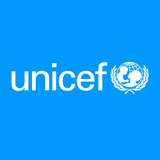Mothers survive Ebola while pregnant against the odds in the Democratic Republic of the Congo
This article was originally published by the World Health Organization Regional Office for Africa here. “I put my feet on the ground and wiggled my toes. It felt strange to touch the ground for the first time in weeks. Slowly, I stood up, holding the hand of the nurse. I held my swollen belly and … Continued
Inside the Ebola treatment centres of Congo, where survivors bring hope to those on the edge of death
This article was originally published in The Telegraph (UK) here. For a patient diagnosed with perhaps the world’s most chilling disease, Congo’s Ebola treatment centres are a terrifying place to be. From the moment their blood tests positive, victims are placed in hermetically sealed bio-secure units. As they teeter between life and death, almost the … Continued
‘Miracle’ six-day-old baby survives Ebola
A baby girl who was diagnosed with Ebola when she was only six days old has survived, health officials in the Democratic Republic of the Congo have confirmed. Baby Benedicte’s mother was infected with Ebola and died during childbirth. Benedicte showed symptoms only days later and it has taken five weeks of round-the-clock treatment to … Continued
Countries taking bold steps to end preventable newborn deaths within a generation; framework for ending maternal mortality released
Countries are taking bold steps to end preventable newborn deaths within a generation. Additionally, a framework for ending maternal mortality has been released.
Map: The best (and worst) countries to be a mother
On average, one woman in 30 is likely to die from pregnancy-related causes, and seven out of 10 women will lose a child in their lifetime. Despite global improvements in children’s and maternal health, inequality between the world’s richest and poorest mothers and children is widening.
‘Tale of Two Cities’ Widens Worldwide for Children, Study Shows
In two-thirds of the 36 developing countries among the 179 nations surveyed, the poorest urban children are at least twice as likely to die as their wealthier counterparts, according to the report.
Oral Antibiotics Are Found to Save More Infant Lives
“These results should provide a sound basis for policy makers and experts to now empower and train staff at first-level outpatient units and to ensure proper drugs and equipment are available,” said Dr. Steve Wall, an adviser to Save the Children.
Simplified Antibiotic Treatment Strategy Could Save Thousands of Babies
Now, new, more accessible drug regimens – combining oral and injectable antibiotics – given in outpatient settings appear to be just as effective as hospital care.
Oral antibiotics showed similar efficacy, safety to injectable antibiotics for bacterial infections
To compare efficacy of oral amoxicillin vs. injectable procaine benzylpenicillin-gentamicin for treatment of fast breathing, researchers randomized 2,333 infants with fast breathing as the only sign of possible serious bacterial infection to receive either treatment for 7 days.
WHO called to change infant infection guidelines
In disadvantaged areas, many children never reach hospital and around 60% of parents refuse hospital treatment for young infants or are unwilling to adhere to treatment regimens of injectable antibiotics.









